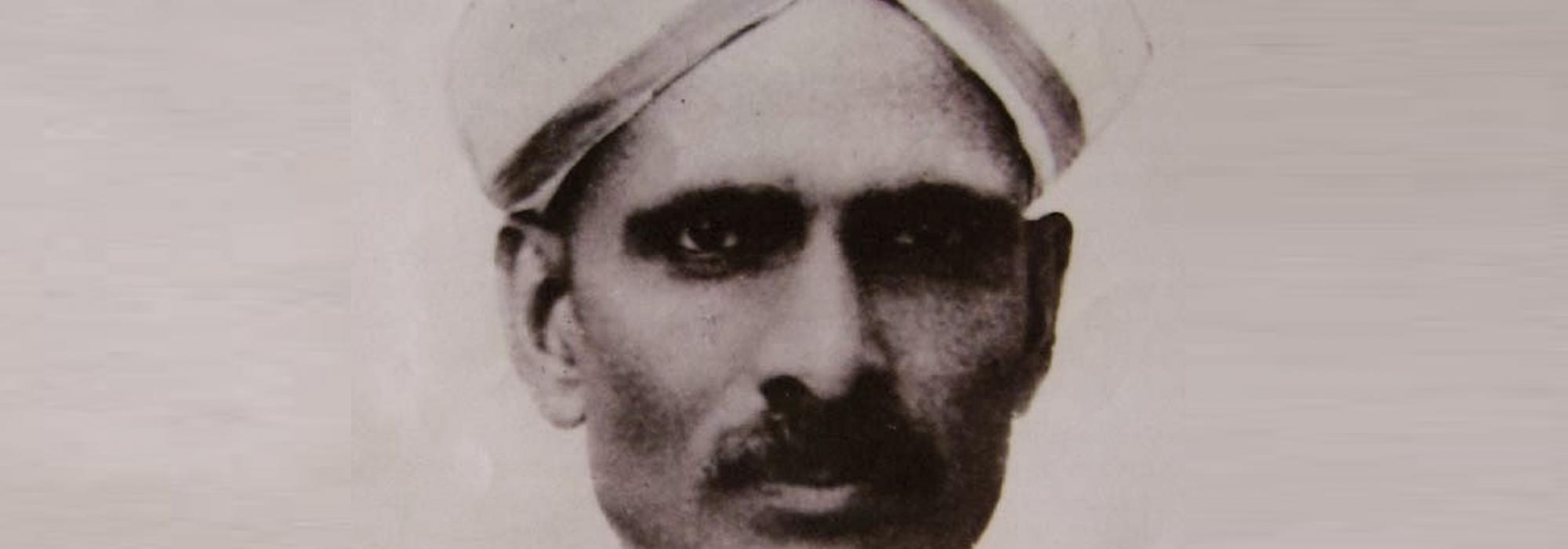सन्तोषं जनयेत् प्राज्ञः तदेवेश्वरपूजनम्
[The eminent should create joy for others, that is the same as the worship of Īśvara]
The ancestors of the Late Sri. T S Venkannayya hailed from Chitradurga district of the Mysore province. His father’s name was Subbanna. His mother was Lakshmidevamma. Subbanna was tall and lean, but an active person. Though he did not possess a degree upon completing any significant exam, he was reasonably educated and was endowed with a great business sense. He was much sought-after by some and respected by all people in his region; he was devoted to dharma, the Supreme, and traditional practices; he breathed his last in 1919, when he was about fifty-five. Perhaps even Lakshmidevamma had all the aforementioned qualities; in her youth, in spite of women lacking the opportunity of education in rural areas, she had the ability to read and understand the Rāmāyaṇa, the Mahābhārata, and Venkatacharya’s novels in Kannada. And now, due to Venkannayya’s death, she is suffering the intense pain of losing a son.
Venkannayya was one among a total of twelve children – they were seven brothers and five sisters. Venkannayya was the eldest child. He was born on 1st October 1885 at Taluku village of Challakere taluk in Chitradurga district. After having studied and passed the Lower Secondary exam at Challakere and the Matriculation exam at a high school in Chitradurga he came to Mysore in 1904 for the FA [First Arts, popularly known as Intermediate] examination. It was then that we first got acquainted, in Mysore. For a year, he had studied at the Wardlaw College, Bellary for the FA examination. He passed the FA exam, moved to Maharaja’s College, Mysore; after completing his BA in History and Economics (1909), he went to Bombay to study for the LLB exam. He completed the first exam and took the second one also. Even when he was a student there, he had decided to pursue an MA; he came to Mysore, learnt Kannada from the renowned paṇḍita Sri. S Thimmappayya Shastri and Telugu from Sri. Rallapalli Ananthakrishna Sharma and passed the MA exam (1914) as a private candidate.
Until the completion of his studies, Venkannayya’s father’s younger brother, Sri. T Srinivasa Rao helped him financially. Although he received a student scholarship for some time, without his uncle’s financial assistance, there would have been no impetus for Venkannayya to pursue higher education. Srinivasa Rao was delighted upon seeing that his assistance was so fruitful. But now he is greatly aggrieved by Venkannayya’s untimely death.
Venkannayya had a brilliant mind; not only his teachers but also his acquaintances knew this well. But he was not for rewards or one-upmanship; his mental temperament and his physical health too were unsuited for that. However, sometimes, perhaps when even he least expected it, he received reward and recognition. While he was at Wardlaw college, the college received two large volumes of the life history of Jesus Christ. Mr. Thomas Denham, who passed away a few months ago, was then the President of the History Association of Maharaja College, and during its annual celebrations had organised a competition that tests visual memory. A number of articles were placed on a table and a list of those articles had to be made after observing them for only a minute. The contestant who could remember and list the most number of items would win a prize. I remember Venkannayya winning this prize and receiving two delightful volumes of [James] Boswell’s ‘Life of [Samuel] Johnson [LL.D (1791)]’. More recently, possibly in 1937, an amusement event was held during a fest at Maharani’s college. A pig was drawn on a board; except, it had no tail. The contestants had to go blindfolded, and with chalk, had to mark its tail at the right position. Muttering ‘this should be a piece of cake!’, contestants boldly walked up and marked the tail on its head or under the tummy or across the leg; and everyone was amused looking at the spectacle. Coaxed by friends, Venkannayya too went up and won the contest. His prize was a bird crafted in silver. “Venkannayya pulled (the kannada word for ‘pull’ and ‘draw’ are the same) a pig’s tail and earned a silver bird” was for a time, a puzzle for people like the famous samasyā “टंटंटटंटं टटटंटटंटः” who unaware about all this.
While pursuing the LLB examination in Bombay, he was a clerk for some time in the General Post Office. Later, he was an assistant lecturer at the Mission High School in Dharwad and at St. Joseph’s college in Bangalore Cantonment (1916), becoming the Headmaster of the Kannada High School at Doddaballapur in 1917. This was the first government appointment he procured. His career progressed well, at Bangalore’s English High School and Central College, as he became a Professor of Kannada at Maharaja’s College (1927).
Intelligence, acumen, and wisdom were fused in Venkannayya’s scholarship. He would never wield an axe where a fingernail would do. It was his nature to do things tactfully making sure there were no impediments. He never rushed into things impulsively. Like the saying “तौ सम्परीत्य विविनक्ति धीरः” , he would comprehend every issue from all possible perspectives, measure it, enquire with relevant people, weigh its pros and cons and then come to a decision. Lastly, he never prayed to the Lord for anything. Because, his rationale was “how do we know what is good for us? What if God grants our desire and then it leads to some trouble?”. (He would quote an anecdote from the life of Agaḍi sādhu to substantiate this.). Even such a man, just once - in 1916 when I was ill and precariously close to death - prayed “God, please spare our Krishna”. (He told this to me later). So far, I have believed that God listened to him and granted his wish.
Venkannayya knew people’s capabilities, strengths and weaknesses; he was aware who could do a given task and how; and would obtain their participation using affection, wit and courtesy. Therefore, his friends used to opine that the following verse aptly applies to him.
ఏప్పటికయ్యది ప్రస్తుత-
మప్పటికామాటలాడియన్యుల మనముల్- ।
నోప్పింపక తానోవ్వక
తప్పించుక తిరుగవాడు ధన్యుడు సుమతీ ॥[He is indeed fortunate, who always talks appropriately, doesn’t hurt others, never feels dissatisfied.]
This is the first of the three-part translation of the article "ದಿವಂಗತ ಶ್ರೀಮಾನ್ ಟಿ ಎಸ್ ವೆಂಕಣ್ಣಯ್ಯನವರು" by A R Krishna Sastri which appears in the collection "ಬೆಲೆಬಾಳುವ ಬರಹಗಳು". Edited by Raghavendra G S. Thanks to Sri. Ganesha Koppalatota for his timely help in translating the Telugu verse.















































